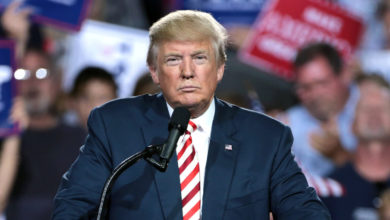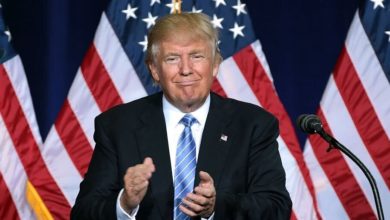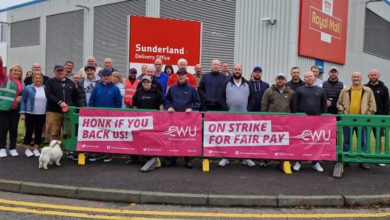The British Labour Party, under the left-wing leadership of Jeremy Corbyn, has stunningly deprived the ruling Conservative Party of its majority in parliament and secured the largest increase in the party’s share of the votes since 1945. Corbyn’s near victory — defying ruling class commentators and news outlets who predicted his crushing defeat — is a source of hope for the growing socialist movement around the world.
When Prime Minister Theresa May called for snap polls in April, the Labour Party was registering about 25 percent support in most opinion surveys. It ended up securing 40 percent of the vote and 262 seats on election day (Members of Parliament are elected more-or-less the same way as Congresspeople in the United States, on a district-by-district basis with no run-off second round). The Conservative Party got 318 seats, eight short of a majority.
In another positive development, the far-right, racist United Kingdom Independence Party was delivered what appears to be a death blow, seeing its vote share fall to just two percent from 13 percent in the last election.
May has announced that she will stay on as Prime Minister after negotiating what is known as a “supply-and-confidence” arrangement with the Democratic Unionist Party, which won 10 seats in parliament. The DUP is the main political successor to the ultra-right wing paramilitary groups that terrorized Irish freedom fighters and the nationalist community prior to the 1998 Good Friday agreements that largely ended the armed struggle against British colonial rule in Northern Ireland.
The DUP however insists negotiations are ongoing and there is considerable turmoil within the Conservative Party including the resignation of Theresa May’s co-Chiefs of Staff Fiona Hill and Nick Timothy. Her resignation or forced removal in the coming days is not out of the question.
By calling for these elections, Theresa May was gambling that she would strengthen her hand going into the “Brexit” negotiations over the terms of the country’s exit from the European Union by decimating Labour. Instead, her government finds itself greatly weakened.
Why Corbyn beat the odds
Marxists engage with electoral politics not as the site where social revolution is made but to help facilitate class consciousness; to quote Engels, “it is the gauge of the maturity of the working class.” The most important takeaway from the British election is that millions of young people and workers who flocked to Corbyn’s left-wing banner on the basis of social justice, solidarity and fighting the status quo. That they did so despite all the counsel from the “respectable opinion” made this phenomenon all the more remarkable and promising.
Corbyn was able to pull off his upset on the basis of a program considerably to the left of what any major political force in the UK has put forward in decades. Labour demanded a government that served the working class and poor, rather than the 1%, based on the slogan “for the many, not the few.” Core demands included the nationalization of the country’s railroads, energy, water and mail services; full funding for the National Health Service; tuition-free college education; an increase in the minimum wage and free school meals for all children.
A decisive point in the campaign was the publication of the parties’ manifestoes. While the Conservatives offered simply more austerity, Corbyn and Labour’s left wing articulated in bold and accessible terms a coherent vision of the policies of a labour government should they win the election. This 127-page program, “For the Many, Not the Few,” became a rallying point especially for young people. This program was not an expression of classic revolutionary socialism in a number of respects, particularly in regard to defense policy and its call for continuing the UK’s membership in NATO. But it was, in the context of British politics of recent decades, a truly radical break with the dominant neo-liberal capitalist consensus that dominated both the Conservatives and Labour parties.
Corbyn’s campaigning across the country brought out some of the largest crowds of any candidate in recent British history. The groundswell was enormous among the youngest voters. In 2010, this age group favored Labour by just one percent, but under Corbyn this advantage grew to 51 percent. The turnout of young voters, who overwhelmingly reject austerity, immigrant-bashing and military intervention, played a major role in boosting Corbyn’s campaign.
Terrorist attacks in Manchester and London days before the election could have upended the campaign and Corbyn’s surge. But that did not happen. Theresa May responded with anti-Muslim bigotry and promises to crack down on civil liberties. Corbyn framed these attacks in the context of U.S.-British military aggression that has destabilized the Middle East and North Africa, and led to the rise of ultra-reactionary fundamentalist groups. This message, which was mercilessly attacked by the British media, resonated much more than the newspapers cared to admit.
In addition to his left-wing positions on domestic issues, Corbyn has an anti-imperialist record that contrasts sharply with the Blairites who have led the party for 25 years. Under Tony Blair the Labour Party was an eager partner of the Bush administration in the genocidal 2003 invasion of Iraq. Corbyn was among the foremost leaders of the movement against the Iraq War in his capacity as chairman of the Stop the War Coalition.
Corbyn is an active supporter of both the Irish and Palestinian liberation movements, and he has spoken out in solidarity with revolutionary and progressive movements and government in Argentina, Chile, Cuba, El Salvador, Nicaragua, Venezuela and elsewhere in Latin America. This is a challenging position for an elected official to maintain in the centers of Empire where the very first rule of “respectable” politics is to join together in demonizing such anti-imperialist struggles.
For his positions, Corbyn has been relentlessly slandered in the ruling-class media as a “terrorist sympathizer.” But this rhetoric, screaming out from the front page of every newspaper tabloid, fell flat during the general election. Once voters were able to genuinely listen to Corbyn, able to read and hear his message for themselves, they were not scared off by his record of international solidarity.
The enemy within
In much the same way that the corporate media rallied against Bernie Sanders on the basis of him being “unelectable,” the ruling class press and political leadership slammed Corbyn as an electorally-doomed radical with extreme ideas.
As the Party for Socialism and Liberation wrote in a statement in 2015 following Corbyn’s election as leader of the Labour Party:
“Corbyn’s election marked a decisive defeat for the “New Labour” former leadership, whose pro-imperialist, neo-liberal policies under [former Prime Minister] Tony Blair had become thoroughly discredited. Liz Kendall, considered by some the “Blairite candidate,” came in dead last in the race … The Labour Party as presently constituted, like the other social-democratic parties in Europe, will not be the vehicle for the revolutionary overturn of capitalist rule. But the capitalists are furious about Corbyn’s election and want to destroy his political influence quickly because they fear that his election could be both a sign and a catalyst for a new wave of fightback and resistance.”
In addition to Theresa May and the Conservatives, much of the Labour Party officialdom in Parliament (“New Labour”) in fact hoped for Corbyn to be defeated badly in the campaign so that they could reassert control of the party and put it back on a staunchly pro-imperialist, neoliberal path. They have been trying to bring down Corbyn since the day he was elected party leader, on the basis that he was “too radical” to resonate with a broader public. But this was disproven decisively on June 8, and their hopes for a party coup against Corbyn were dashed. Corbyn now has greater political capital than ever to determine the direction of the party.
Working class and oppressed people in Britain face a difficult struggle in the period ahead. The Conservatives are weakened but they still hold power and will try to push ahead with their anti-worker, anti-immigrant and pro-war agenda. Inside Parliament, Corbyn can continue to give voice to the millions who wholeheartedly reject that vision and want to fight back. Of decisive importance will be the building of mass social movements, trade unions, and socialist groups that operate outside of Labour and electoral politics, to take and hold the streets, to make further austerity measures impossible, and deepen the Tories’ crisis of legitimacy. While not yet victorious, these forces have come out of the election strengthened and are well positioned now to seize the initiative.






